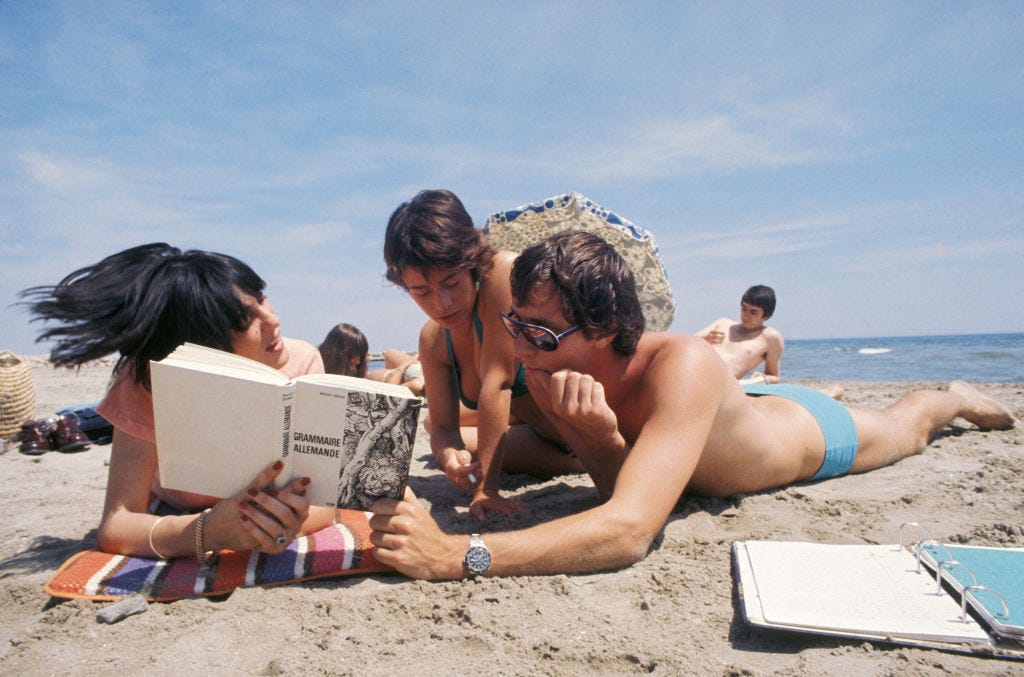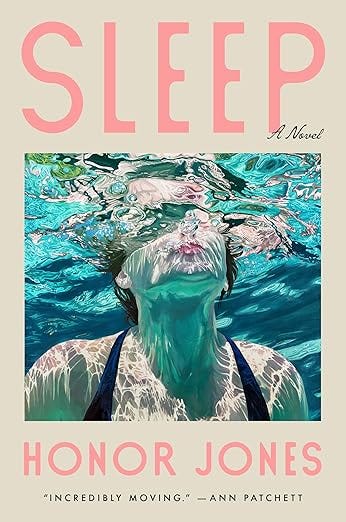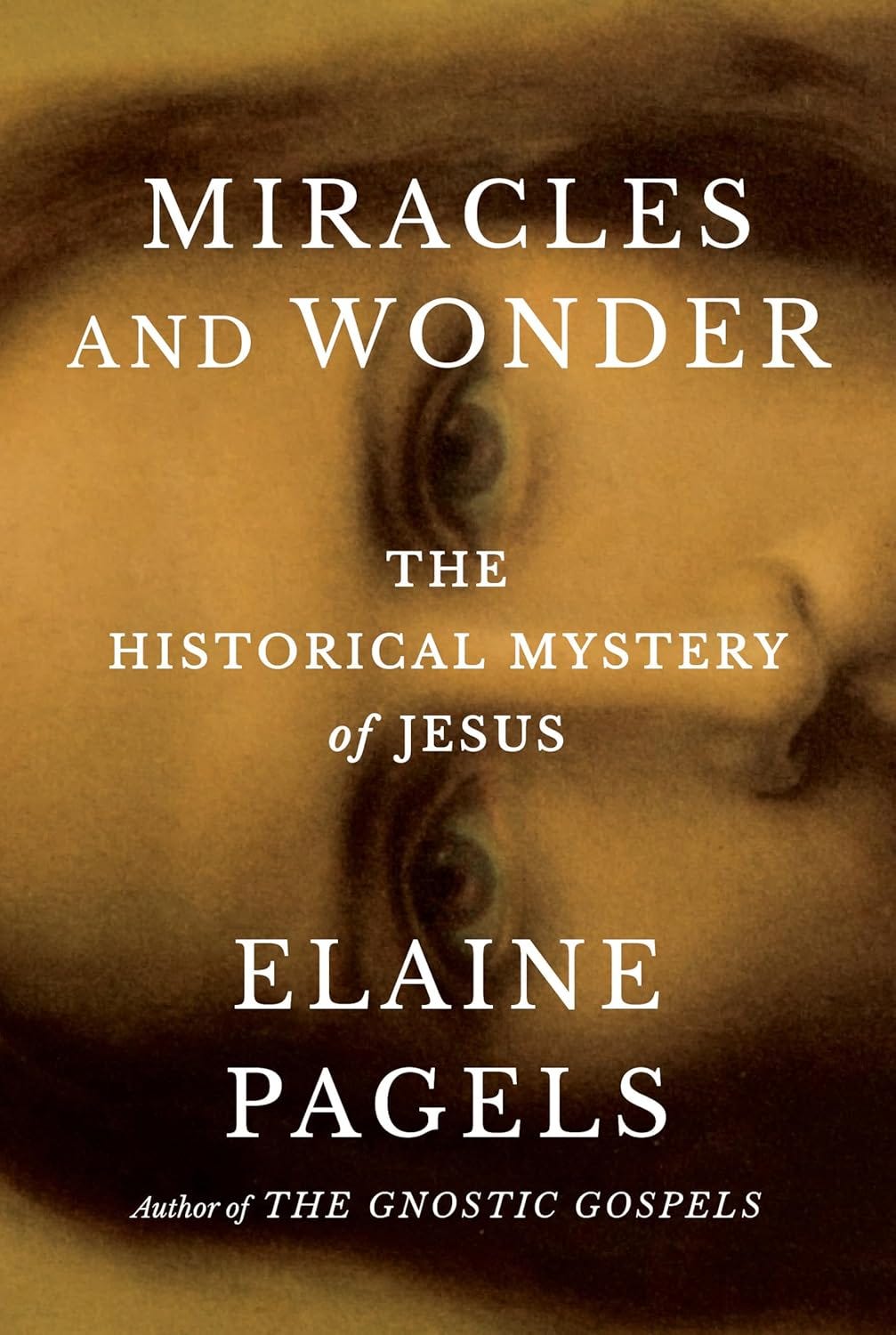 |
| By Isaac Grafstein |
We know our readers really, really love a good book—and that right now, you’re probably wondering which one to put in your beach bag this summer. So today, in place of Suzy’s column—she turned thirty this week! She deserves a break!—we’re bringing you the ultimate Free Press reading guide for summer 2025. If you scroll down, you’ll find Niall Ferguson sharing his favorite sci-fi novel, Abigail Shrier recalling her reaction to Douglas Murray’s new book, and Nellie Bowles reflecting on a new history that made her sit back and say “whoa.” These are not your average beach reads. Enjoy! —Isaac Grafstein
First up, Joe Nocera recommends the perfect bedtime reading: Sleep by Honor Jones.
When you see someone only in a certain role in life, you don’t know what mysteries—what gifts—they hold in their head. I knew Honor Jones, though not well, when she was an editor in the opinion section of The New York Times. She was quiet. Competent. Reserved. I expect she’s the same at The Atlantic, which now employs her.
So when I read her debut novel, Sleep, which was published in May, I did not expect to be bowled over. But I was. There is nothing quiet or reserved about this book; it tells a taut, hard story. Its central character is Margaret, a girl who suffers a childhood trauma—which her mother refuses to acknowledge, and which Margaret feels compelled to keep secret—and how that trauma affects her into adulthood as she raises her own children, both girls. The novel explores the tension that arises in the fraught dynamics of Margaret’s family with great skill and nuance.
Until July 8, get $17.76 off an annual subscription to The Free Press. We’re celebrating America at 250 with a year of events, articles, livestreams, and more exploring and celebrating the American project. Make sure you have access to all of it—join our movement by upgrading today. |
It’s also a beautiful piece of writing, with vividly drawn characters and almost too-perfect descriptions. (There was nothing sinister now about the big, quiet house as the morning sun idled into the room. The light concentrated: first a diluted white, then cream then suddenly golden.) Her simple, straightforward sentences tremble with great power as the book builds to its climax. Is it a beach read? I don’t know. More likely, it’s the book you should start on a rainy day during your vacation, because once you begin it, you’ll want to finish it in the same sitting.
If you are on the lookout for a book that’s strictly beach-read appropriate, this week we published a delightful excerpt from a new surfing memoir by a former Obama speechwriter, which tells the story of an unlikely cross-political friendship:
TGIF czar Nellie Bowles recommends a book about Jesus that made her feel like a college kid: Miracles and Wonder by Elaine Pagels.
I highly recommend Elaine Pagels’ Miracles and Wonder, a gorgeous new book about the historical Jesus. Pagels is the best living writer on early Christianity, and this book, like her others, is lyrical and warm but also quite brave.
The premise is that you can’t understand a lot of the scriptures without knowing more about that time, and Pagels dives into the era, giving context for the words attributed to Jesus and tackling topics like the virgin birth and resurrection. Each chapter left me sitting back in my seat like a college kid, saying: “Whoa, that makes sense.” She explains how certain phrases Jesus and his followers spoke would be understood at the time—metaphors that were hidden jabs at the Romans, for example.
The result is a pretty radical new vision of Jesus in his era, as a man but also as a political figure. Now, I know this is a summer reading list, and a book of contrarian history isn’t an obvious beach read, but I promise it’s surprisingly breezy and fun.
Senior editor Will Rahn’s pick is a 900-page portrait gallery of the twentieth century that touches on everything from Richard Burton’s hair to Pablo Neruda’s allegiance to Stalin: Cultural Amnesia by Clive James.
Cultural Amnesia is one of those books that shouldn’t work but does. A sprawling, 900-page history of the twentieth century told via essays on 106 notables, Clive James’ masterwork also doubles as one of the more compelling defenses of liberal democracy ever written.
James is not really a political essayist; he’s much more interested in people than ideology. The essays swerve in unexpected directions—the one on Heat director Michael Mann focuses on the mutability of American English, for example, while the








